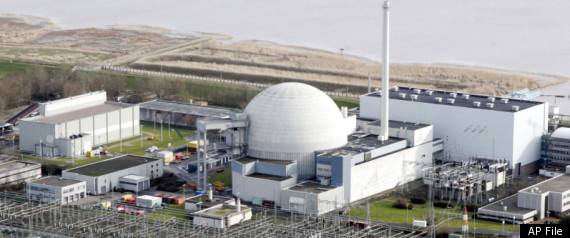
Wernigerode, Germany – The environment ministers of Germany's 16 states agreed Friday that the country's seven oldest nuclear reactors should be shut down permanently.
These reactors have all been suspended as part of a three-month nuclear 'moratorium' imposed by Chancellor Angela Merkel following the Fukushima nuclear disa ster in Japan on March 11.
Merkel's government is due to make a final decision on the future of Germany's nuclear programme on June 6.
A panel of security experts and an ethics advisory board have been considering the post-Fukushima future of nuclear energy in Germany, where most people object to the technology.
Germany operates a total of 17 nuclear reactors, seven of which were built before 1980.
The security panel reported last week that all reactors were sufficiently safe against most conceivable events – barring a direct plane crash, perhaps as part of a terrorist attack. The nuclear energy industry has warned against power outages if the nuclear exit strategy is implemented too rapidly.
A 2.3-billion-euro (3.3-billion-dollar) nuclear energy tax, intended to fund the development of alternative energies, may also fall victim to a rapid nuclear phaseout.
Last year Merkel's government extended an earlier 2022 deadline to wind down nuclear power generation – a decision her government rapidly reconsidered in the days after the Fukushima reactor was struck by an earthquake and tsunami.

